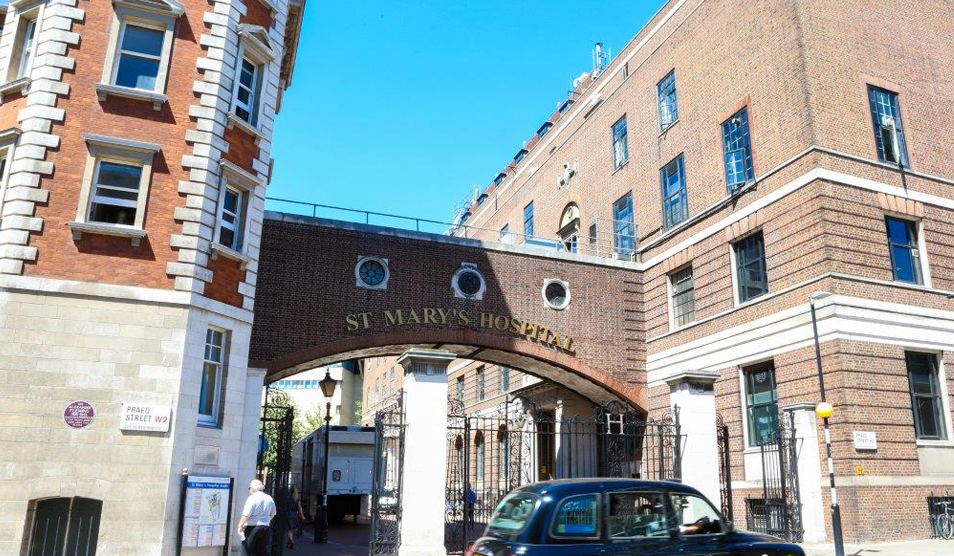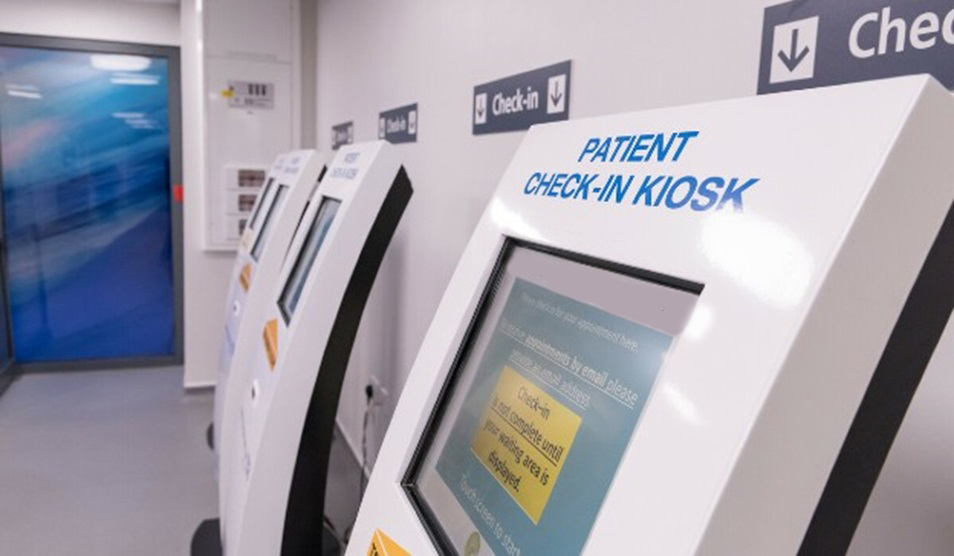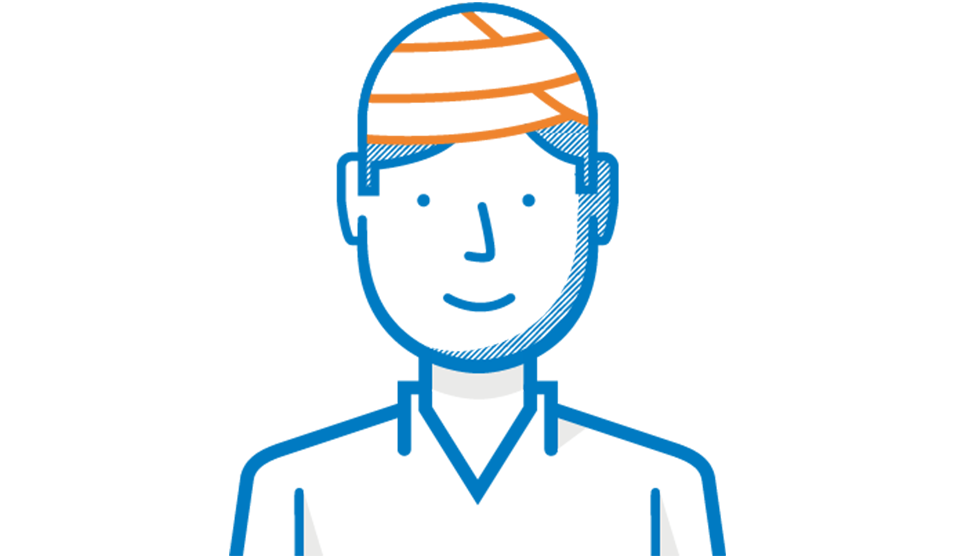Emergency care
Visitor Information
Translation help:
To translate this page into your preferred language, click the Google Translate icon in the top-right menu and select your desired language.
Our emergency care services include accident and emergency departments, specialist emergency centres and urgent treatment centres (UTC).
- A&E services are based at Charing Cross and St Mary's hospitals
- Ambulatory emergency care (AEC) and Same Day Emergency Care (SDEC) services are located at Charing Cross and St Mary's hospitals
- Urgent treatment centres are located at Charing Cross, Hammersmith and St Mary's hospitals
- Children's A&E is located at St Mary's Hospital
Our hospitals are also the home to some of London’s specialist acute medicine centres including:
- a major trauma centre at St Mary’s Hospital
- a hyper acute stroke unit at Charing Cross Hospital
- a heart attack centre at Hammersmith Hospital
- a ophthalmic emergency service at the Western Eye Hospital
Reduced opening hours at Western Eye Hospital accident and emergency department
- Our accident and emergency department opening hours are 08:00 to 20:30. This is a temporary change to the opening hours and is part of the response to the coronavirus outbreak which is affecting NHS services. If you feel your condition requires urgent treatment outside of these times, then please attend the A&E departments at St Mary’s Hospital or Charing Cross Hospital.
Find out where to go for medical advice or treatment if you are feeling unwell or have had an accident.
About our emergency care services
These centres are staffed by expert teams and provide specialised emergency treatment, giving patients the best chance of recovery. To ensure you receive the best possible specialist care, an ambulance may take you to one of these centres rather than your nearest emergency department. We use a priority system where the most clinically unwell patients are seen first.
Our staff should be able to carry out their work without fearing for their safety. We do not tolerate any threatening or aggressive behaviour towards staff.
We offer investigations and appropriate treatment for each patient's condition. In an emergency always dial 999.
If you are feeling unwell now call NHS 111 for advice and health information. The helpline is open 24 hours a day. You can also visit WWW.NHS.UK/111 to determine if your symptoms can be managed at home, if you need advice from the NHS or if you need to call for an ambulance.
Meet the team
Clinical director
Head of specialty
Dr Ruth Brown
Dr Barbara Cleaver, adults, St Mary's Hospital
Dr Dane Moravek, Charing Cross Hospital
Dr Neil Thompson, paediatrics, St Mary's Hospital
Consultants
Dr Katie Archer
Dr Abosede Ajayi
Dr George Bailey
Dr Lucy Bingham
Dr Fran Cleugh
Dr Jenni Cooper
Dr Josh Davison
Dr Philip Dobbs
Dr Euan Douglas
Dr Ursula Edirisinghe
Dr Marwa El-Zanfaly
Dr Anna-Claire Feld
Dr Sarah Finlay
Dr Miles Gandolfi
Dr Catherine Gant
Dr Amrit Gherra
Dr Chioma Ginigeme
Dr Peter Greengross - Public Health consultant
Dr Akshay Hindocha
Dr Greg Horner
Dr Oliver Jefferson
Dr Sophie Jefferys
Dr Nabeel Jemah
Dr Pip Lewis
Dr Ian Maconochie
Dr Jon Matthews
Dr Wendy Matthews
Dr Vanessa Merrick
Dr Hugh Millington
Dr Anu Mitra
Dr Sarah O'Riordan
Dr Faye Probst
Dr Asif Rahman
Dr Julian Redhead
Dr David Rouse
Dr Rebecca Salter
Dr Danny Sharpe
Dr Lombe Simpungwe
Dr Tom Smith
Dr Vasundhara Talwar
Dr Kamran Zafar
Senior nurses
Emma Tippins, lead nurse
Sarah Brown, deputy lead nurse
David Crichton, matron, adults, St Mary's Hospital
Ian Gilmour, paediatrics matron, paediatrics, St Mary's Hospital
Amy Hill, matron, Charing Cross Hospital
Acktar Owarish, matron
Georgina Curtin, matron
Julia Gamston, consultant nurse, head of service urgent care
Management
Kelly Sullivan, general manager
Christopher Hughes, deputy general manager
Daniel Ridley, business manager, Charing Cross Hospital
Marissa Sissou, business manager, St Mary's Hospital
Patient information
Before your appointment
Please attend your appointment unaccompanied to keep everyone safe. Carers are welcome to come to hospital to support patients' health and social needs.
It is recommended that you wear comfortable clothing if possible.
Please note that we are a teaching hospital, so healthcare students may be involved in your care. If you do not wish to have them in the room please let the nurse or doctor know and the students will be asked to step outside.
If you are coming to the A&E, ambulatory emergency care unit or urgent treatment centre from home, it is a good idea for you or your carer to bring details of any medication you are taking (it is often easiest to bring the medicine packets). Please also bring any details of previous or upcoming hospital appointments as this will help our staff to understand your medical history.
Please try to remember to bring details of your GP – if you keep these details on a small piece of paper in your wallet it is easier at the hospital to give the correct details. Liaison with your GP is crucial for ensuring you receive appropriate ongoing care.
During your visit
Upon arrival please visit the A&E reception. You will be seen by a healthcare professional and directed to the most appropriate area for your needs. This could be the majors or resuscitation areas in our A&Es, one of our ambulatory emergency care units, or an urgent treatment centre.
You should be seen by a doctor or other healthcare professional within one hour of your attendance. You should be treated and either admitted or discharged within four hours.
You will be assessed and all necessary tests will be carried out. Once confirmed you will be informed whether you require admission, a further appointment, or a review by your GP. You may have blood tests or imaging as required.
After your visit
After your appointment you will receive a copy of the letter which will be sent to your GP. You will be given instructions on whether you should see your GP, or be referred to a different specialty within the hospital. If you do not remember your GP’s details, the letter will not be sent.
Refer to this service
GP
If a patient has been referred as an emergency case by a GP or another hospital to a particular team within the Trust, the patient will still have to register at A&E first. Although the specialty team will be expecting your patient, they may not be able to see them immediately.
If one of your patients has been seen in our A&E we will send you a letter with details of the outcomes and any treatment they received. The patient will also be given a copy of this letter before they leave. Our A&E aims to complete the discharge letter within four hours of the patient’s discharge. The letter will be sent electronically to your practice; however, if the patient does not remember their GP's details this letter will not be sent.
Charing Cross Hospital
A&E phone: 020 3311 1006
A&E clinical base phone: 020 3311 1001
A&E office phone: 020 3311 1007
UTC reception phone: 020 8846 1005
Hammersmith Hospital
Phone: 020 8383 4103
St Mary’s Hospital
A&E phone: 020 3312 1200 (out of hours: 020 3312 2447)
Email: imperial.smhed@nhs.net
Paediatrics A&E phone: 020 3312 3771
If you need to enquire about a patient’s attendance at St Mary’s Hospital A&E, please phone 020 3312 1200 between 08.00 and 17.00, Monday through Friday or email IMPERIAL.SMHED@NHS.NET.
Further online resources
- RIGHT CARE WEST LONDON
- HEALTHCARE SERVICES IN NORTH WEST LONDON
- WHICH Westminster High Intensity Care Hub – if you live in Westminster and are struggling to find the right care you need

Paddington square construction works next to St Mary's Hospital
Patients and visitors to St Mary’s Hospital may experience some disruption caused by nearby construction works for the Paddington Square development (located between Praed Street and South Wharf Road). We apologise in advance for any impact these neighbouring works may have for our patients and visitors.
While the developer has put in place a range of mitigation and monitoring measures, we anticipate that there may be some disruption caused by additional noise, dust and vibration. If patients and visitors wish to raise any issues about the impact of the construction works on their care and treatment, then we would ask them to speak to our staff or contact the patient advice and liaison service (PALS).
Take our friends and family test Learn more
Would you recommend our accident and emergency services to your friends and family? Let us know by completing our friends and family test. Your comments will help us to make changes and take immediate action when there’s a problem.
Latest news See all news
-
 Read the full story
Read the full storyPrimark donates essential clothing to support patients experiencing homelessness
People experiencing homelessness who visit the emergency departments at our hospitals have been receiving vital support thanks to a generous clothing donation from Primark.
-
 Read the full story
Read the full storyInformation and advice about industrial action planned this month
A 72-hour strike by junior doctors is due to take place from 7am on Wednesday 14 June until 7am on Saturday 17 June.
-
 Read the full story
Read the full storyWebinar encourages public involvement in new surgical centre
Would you like to be involved in the ongoing development of a new orthopaedic centre at Central Middlesex Hospital (CMH) which will carry out up to 4,000 operations a year for patients living across north west London?

